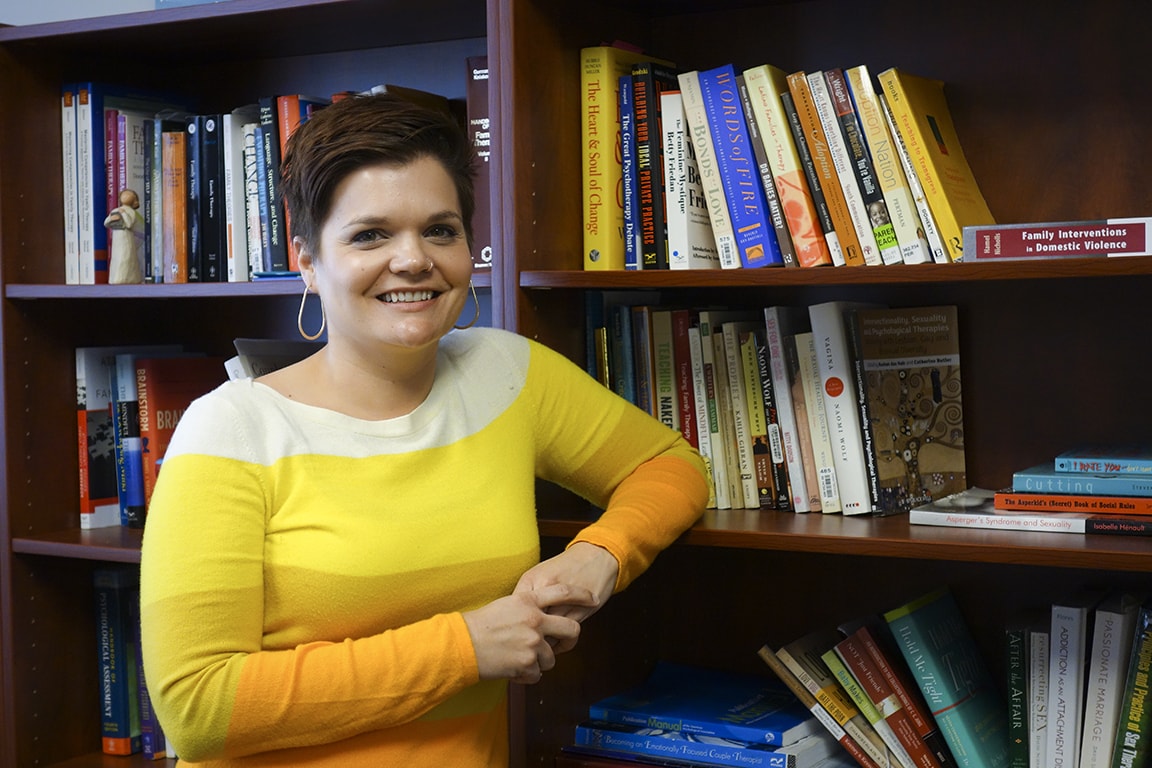Don’t Share, Don’t Ask: Physicians Need Better Medical Screening Practices
Research from Saint Louis University finds that male and female same-sex partnered patients fail to identify as such in medical records and that failure may contribute to poorer health outcomes.
The research by Katie Heiden-Rootes, Ph.D., assistant professor of medical family therapy in Family and Community Medicine at Saint Louis University School of Medicine, calls for more consistent screening of the sexual partnering of patients to identify patients at greater risk of adverse health problems.
“There is a stigma that still exists with patients in telling the full truth to their physician,” Heiden-Rootes said. “Gay, lesbian and bisexual patients worry about how their physician will react to them.”
The findings point to a need for well-rounded cultural sensitivity training for physicians and gender-neutral language in medical forms, Heiden-Rootes said.
“Doctors are missing a lot of data on sexual partnering by not working towards more complete records,” Heiden-Rootes said. “By not asking those questions about romantic partnerships and spouses, they could be missing a chance to connect with their patients and create a relationship with open communication.”
Heiden-Rootes’ study, which looked at the medical records of patients seen at primary care clinics, found only 44.2 percent of medical records included information about the sexual partners of patients.
There is a stigma that still exists with patients in telling the full truth to their physician. Gay, lesbian and bisexual patients worry about how their physician will react to them.”
Katie Heiden-Rootes, Ph.D.
“Comparison of Medical Diagnoses among Same-Sex and Opposite-Sex-Partnered Patients” was [https://jabfm.org/content/29/6/688.full] published online Nov. 9 in the Journal of the American Board of Family Medicine.
The study looked at a sample of opposite sex and same sex partnered patients, based on medical record diagnoses and identified specific medical needs as well as the impact of socioeconomic issues for lesbians and gay patients in primary care.
“By keeping sexual behavior and partnering a secret we are missing a chance to talk about preventative measures and reach out to someone who may be struggling with depression or possibly involved in sexually risky behavior that their partner does not know about,” Heiden-Rootes said. “We need to ask better questions without making assumptions,” she said.
Eligible patients in the study were those who self-reported being sexually active and identified the gender of their partner in their medical history forms. The research found that there is not a consistent policy across clinics for updating or maintaining missing information from patient history forms.
Both male and female same-sex partnered patients were more likely than opposite-sex partnered patients, to be in lower socio-economic areas and have diagnoses of substance abuse, depression and are more likely to smoke. Women in the sample were more likely to be obese.
Co-authors include Joanne Salas, MPH; Jeffrey F. Scherrer, Ph.D.; F. David Schneider, M.D., MSPH; and Craig W. Smith, Ph.D.
Established in 1836, Saint Louis University School of Medicine has the distinction of awarding the first medical degree west of the Mississippi River. The school educates physicians and biomedical scientists, conducts medical research, and provides health care on a local, national and international level. Research at the school seeks new cures and treatments in five key areas: infectious disease, liver disease, cancer, heart/lung disease, and aging and brain disorders.


















